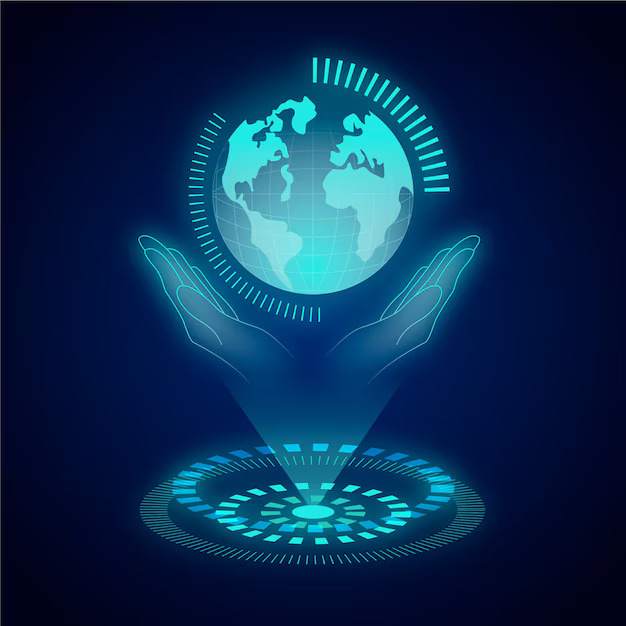Technology plays a pivotal role in shaping the trajectory of both the economy and society, influencing how we l
In today’s fast-pacedive, work, and interact with one another. In today’s rapidly evolving digital landscape, the impact of technological advancements is more profound than ever before. From driving economic growth and creating new job opportunities to revolutionizing education and addressing societal challenges, technology serves as a catalyst for innovation and progress. This article delves into the intricate relationship between technology and economic development, exploring the transformative power of digital solutions in shaping our future.
**Introduction to Technology’s Impact on Economy and Society**
world, technology plays a pivotal role in shaping the economy and society. From revolutionizing industries to transforming how we live and work, the impact of technology is undeniable. But what exactly is the role of technology in modern society, and how has it evolved to become a driving force in economic development?
**Defining the Role of Technology in Modern Society**
Technology in modern society is like avocado on toast – it’s everywhere, and we can’t seem to get enough of it. Whether it’s the smartphones in our pockets or the algorithms running in the background of our favorite apps, technology pervades every aspect of our lives. It serves as a catalyst for innovation, connecting people and ideas like never before. In essence, technology acts as the invisible hand shaping the way we interact, work, and play in the digital age.
**The Evolution of Technology in Economic Development**
The evolution of technology in economic development is akin to a rollercoaster ride – full of ups, downs, and unexpected twists. From the industrial revolution to the digital age, technology has been a driving force behind economic growth and progress. Innovations like steam engines, electricity, and the internet have revolutionized industries, creating new opportunities and disrupting traditional business models. As we hurtle towards an increasingly digitized future, the role of technology in economic development continues to expand, shaping the way we produce, consume, and trade goods and services.
**Technological Innovations Driving Economic Growth**
In the digital age, technological innovations are like the cool kids at school – they set the trends and everyone wants to be their friend. Artificial Intelligence (AI) and automation are two such trendsetters, revolutionizing industries by streamlining processes, increasing efficiency, and unlocking new possibilities. On the other hand, data analytics has become the secret sauce for businesses, providing valuable insights that inform strategic decision-making and drive growth.
**Impact of AI and Automation on Industries**
AI and automation have infiltrated industries like ninjas in the night, revolutionizing the way we work and produce goods and services. From self-driving cars to chatbots, these technologies are reshaping industries, increasing productivity, and creating new job opportunities. While some fear the rise of the machines, others see it as a chance to redefine work and unleash human creativity in ways we’ve never imagined.
**Data Analytics and Its Influence on Business Strategies**
Data analytics is the new golden compass for businesses, guiding them towards success by uncovering hidden patterns and trends in vast amounts of data. By leveraging data analytics, businesses can make informed decisions, optimize processes, and stay ahead of the competition. In the age of big data, those who harness the power of analytics are poised to thrive, while others risk being left in the dust of digital transformation.
Addressing Social Challenges with Technological Solutions
In a world filled with challenges, technology steps in like a superhero with a cape made of innovation. From healthcare to urban development, technological advancements have been instrumental in breaking down barriers and improving lives. Let’s take a closer look at two areas where this digital dynamo is making a significant impact.
Healthcare Innovations Improving Access and Quality of Care
Gone are the days of long waits in crowded waiting rooms. Thanks to telemedicine and wearable health technology, people can now receive medical advice and monitor their health from the comfort of their homes. Not to mention, precision medicine and AI-powered diagnostics are revolutionizing treatment plans, making healthcare more personalized and effective.
Smart Cities and Sustainable Urban Development
Imagine a city where traffic flows smoothly, energy is used efficiently, and waste is managed intelligently. That’s the promise of smart cities powered by IoT sensors and data analytics. By optimizing resources and infrastructure, these cities are not just smarter but also more sustainable, paving the way for a greener future.
The Future of Work in a Tech-Driven Economy
As technology continues to reshape our world, the way we work is also undergoing a digital transformation. From remote work to the gig economy, the future of work is looking more flexible and dynamic than ever before. Let’s dive into the changes that technology is bringing to the workplace.
Remote Work and the Gig Economy
Commuting in your pajamas? Sign us up! Remote work has become the new norm, offering employees the freedom to work from anywhere while employers benefit from access to a global talent pool. Meanwhile, the gig economy is empowering individuals to take on short-term projects and side hustles, redefining the traditional 9-to-5 grind.
Upskilling and Reskilling for the Digital Workforce
With automation on the rise, staying relevant in the job market means constantly upgrading your skills. Upskilling and reskilling programs are becoming essential for workers to thrive in a tech-driven economy. From coding bootcamps to online courses, learning has never been more accessible, helping workers adapt to the evolving demands of the digital age.
Ethical Considerations in Technology Adoption
While technology has the power to do wonders, it also comes with its own set of ethical dilemmas. From safeguarding data privacy to addressing AI bias, it’s crucial to navigate the digital landscape with a moral compass. Let’s explore the ethical considerations that come into play when adopting new technologies.
Data Privacy and Security Concerns
In a world where data is gold, protecting individuals’ privacy is paramount. Data breaches and cyberattacks are not just tech horror stories but real threats that can have far-reaching consequences. Establishing robust data privacy laws and security measures is essential to build trust in the digital ecosystem.
AI Bias and Algorithm Transparency
AI algorithms may be smart, but they are not immune to biases. From skewed hiring processes to discriminatory decision-making, AI systems can perpetuate societal injustices if not carefully designed and monitored. Ensuring transparency in algorithmic decision-making and promoting diversity in tech development are key steps in mitigating AI bias and creating a more inclusive digital future.
Conclusion: Harnessing Technology for Sustainable Development
In the grand scheme of things, technology is not just a tool but a catalyst for sustainable development. By leveraging innovation responsibly and ethically, we can steer technology towards creating a better world for all. So, let’s embrace the power of technology with a mindful approach and pave the way for a brighter future together.
In conclusion, the symbiotic relationship between technology, economy, and society underscores the need for thoughtful consideration and strategic implementation of technological advancements. By harnessing the potential of technology responsibly and ethically, we can pave the way for sustainable development and inclusive growth. As we navigate the complexities of a tech-driven world, it is imperative to leverage innovation to build a brighter future for all, where the benefits of technology are maximized for the betterment of society as a whole.

